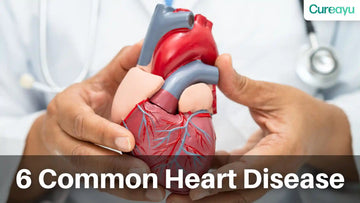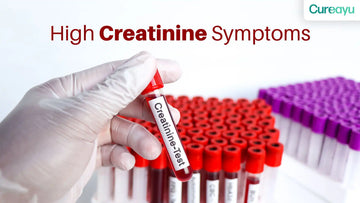When it comes to heart health, triglycerides may not be the first thing that springs to mind. But they should be! Triglycerides are a type of fat molecule that circulates in our blood and can affect our risk of heart disease.
If you want to keep your heart healthy, it’s important to know why these molecules matter and what things can contribute to high levels. So let’s dive deeper into the link between triglycerides and heart health: what do they mean for you and how can you keep them in check?
In this article, I’ll cover what exactly triglycerides are, why they’re important for your cardiovascular health, and give you some simple ways to keep them at healthy levels. Read on to learn more about the fascinating—and important—relationship between triglycerides and your heart.
Triglycerides are a type of fat found in your bloodstream, and they’re an integral part of your overall health. If your triglyceride levels are too high, it can lead to serious medical problems such as heart attack or stroke.
The body uses triglycerides for energy, but when you consume more calories than you burn, some of that excess energy is stored as triglycerides in cells. Trigycerides are also found in foods such as fats, oils and protein sources like nuts, dairy products, and even carbohydrates. When you eat food, the body breaks down the food into smaller units of energy and delivers them to cells.
High triglyceride levels can increase your risk for certain diseases by making plaque form on artery walls. This plaque can restrict blood flow and increase the risk for heart attack or stroke. It’s important to understand how triglycerides work and how to keep your levels in check with proper diet, exercise, and lifestyle habits.
Also Read: Protecting Your Heart: Essential Tips for Heart Health
Relationship Between Triglycerides and Cholesterol
When talking about your heart health, you may have heard of bad cholesterol and triglycerides—but do you know the difference between them? They are both fat-like substances, but cholesterol is produced in the liver and found in many foods such as poultry and eggs, while triglycerides are created from extra calories that aren’t used immediately for energy.
So, what’s the link between triglycerides and your heart health? While both types of fats can increase the risk of heart disease, high levels of triglycerides are especially associated with an increased risk. This is because having higher levels of triglycerides means that fat builds up in your blood vessels which can affect their ability to carry blood, making you more prone to conditions such as stroke or heart attack.
To ensure your heart health, it’s best to keep an eye on both types of fats: aim to keep your cholesterol ratio below 5mmol/l and triglyceride levels below 1.7mmol/l. Of course, this isn’t just achieved through diet; factors such as stress and a sedentary lifestyle can also affect these levels so try to lead a balanced life too!
Risks Associated With High Triglyceride Levels
High triglycerides don’t just put you at risk for other cardiovascular diseases—they can harden your arteries, or atherosclerosis. That’s when plaques made of fat, cholesterol and other substances accumulate on the walls of your arteries. Eventually these plaques can restrict the flow of oxygen-rich blood to and from your heart, leading to strokes and other serious problems.
If it’s not already clear, this is a very serious issue you need to be aware of. Elevated levels of triglycerides in your blood can:
- Increase your risk for developing coronary artery disease
- Increase the risk of stroke and other cardiovascular problems
- Result in a higher risk for metabolic syndrome, which is a collection of health issues such as high blood pressure
- Heighten the chances that you’ll develop complications like diabetes or kidney disease
Also Read: How to Maintain Normal Blood Pressure for a Healthier Life
Impact of Diet on Triglyceride Levels
Remember when we talked about triglycerides, and how they can be a sign of potential heart disease? Well, it turns out it’s not just your genes that matter, but also what you eat. In other words, your diet can have a huge impact on your triglyceride levels.
Foods to Avoid
High-fat foods like butter and cheese can cause an increase in blood triglycerides. Similarly, processed food such as potato chips or sweets that contain a lot of sugar can also boost triglyceride levels. Eating too much red meat or nuts is also linked to elevated blood fats. So if you want to reduce your risk of developing heart disease, it’s important to pay attention to what (and how much) you’re eating.
Foods To Enjoy
On the other hand, don’t forget that healthy meals can help lower triglycerides and improve overall health. Adding foods that are high in unsaturated fats (e.g., fatty fish) and low-glycemic carbohydrates (e.g., whole grains) is beneficial for keeping your levels in check—opt for these instead!
Making simple changes to your diet—like avoiding processed food and adding healthy options—can have a big impact on your triglyceride levels over time. Your doctor may even be able to advise you further on specific steps you should take for reducing the amount of fat in your bloodstream — so don’t skip that appointment!
Factors That Raise Triglycerides Levels
Ever wonder why certain factors can raise your triglycerides levels? It’s important to know why these levels can rise so you can be proactive in managing your heart health. Here are some major factors that raise triglycerides levels.
Eat Healthier
It’s important to eat healthy foods such as lean proteins, fresh fruits and vegetables, whole grains and low-fat dairy products. These types of foods will help keep your triglycerides in check and also provide other health benefits. Try to limit or avoid processed foods and beverages with added sugars, as these can increase your triglyceride levels.
Exercise Regularly
Regular physical activity—at least 30 minutes every day—can help reduce triglycerides. Aim for at least 150 minutes of moderate intensity exercise per week, such as brisk walking, biking or swimming. Keyword here is regular—you want to build exercise into part of your regular routine for maximum benefit.
Also Read: Understanding the Importance of Physical Fitness for Well-being
Lose Weight
If you are overweight or obese, losing weight can help reduce your triglycerides levels. Try to create an effective weight-loss plan that includes healthy eating habits and physical activity—it’s often easier than you would think!
Limit Alcohol Intake
Alcohol has been found to raise triglyceride levels, so try to limit your intake if possible. The same goes for sugary beverages such as soda or juice drinks—these can also cause your triglyceride levels to increase, so be mindful of how often you have them.
Conclusion
Understanding the role of triglycerides in heart health is essential, as high levels can significantly increase the risk of cardiovascular diseases by contributing to plaque buildup in the arteries. Managing these levels through a balanced diet, regular exercise, and healthy lifestyle choices is crucial. Opting for foods rich in unsaturated fats and low-glycemic carbohydrates, while limiting high-fat and sugary foods, can effectively keep triglyceride levels in check.
Proactive measures such as consistent physical activity and regular healthcare check-ups are key to maintaining heart health. By making informed dietary and lifestyle choices, you can significantly reduce the risk of heart-related issues and promote overall well-being. Start these changes today for a healthier, longer life.












